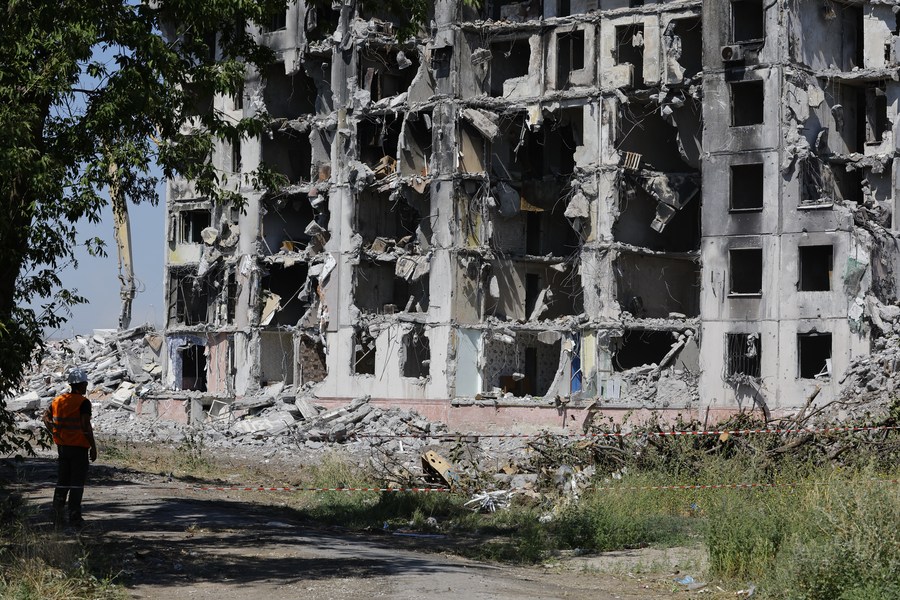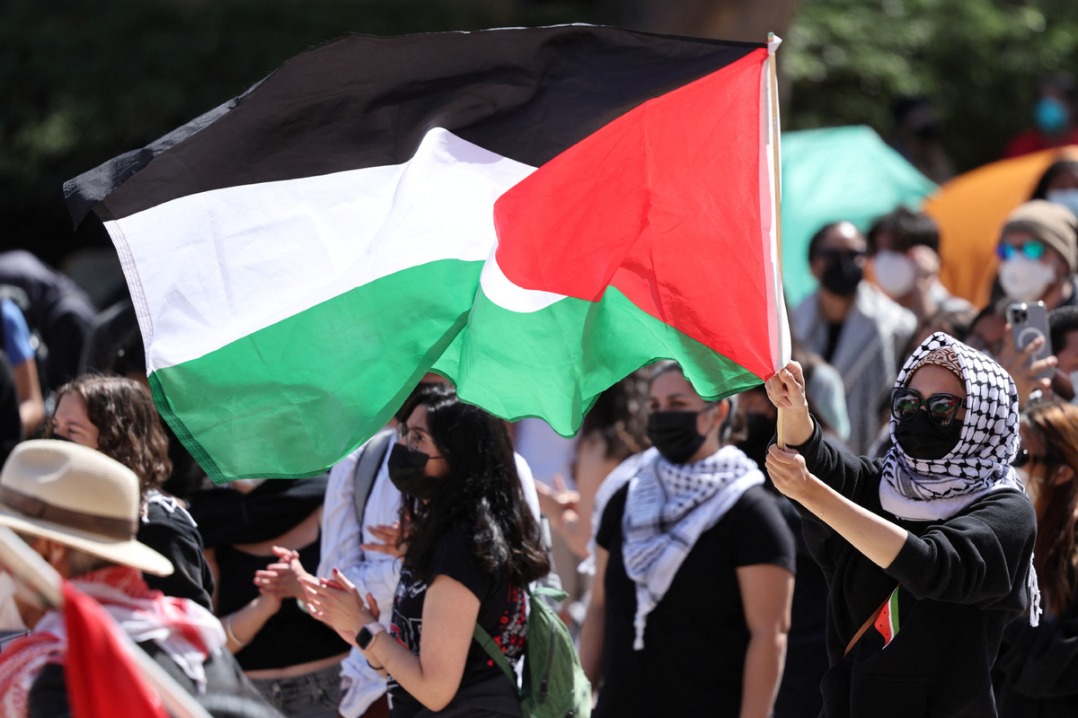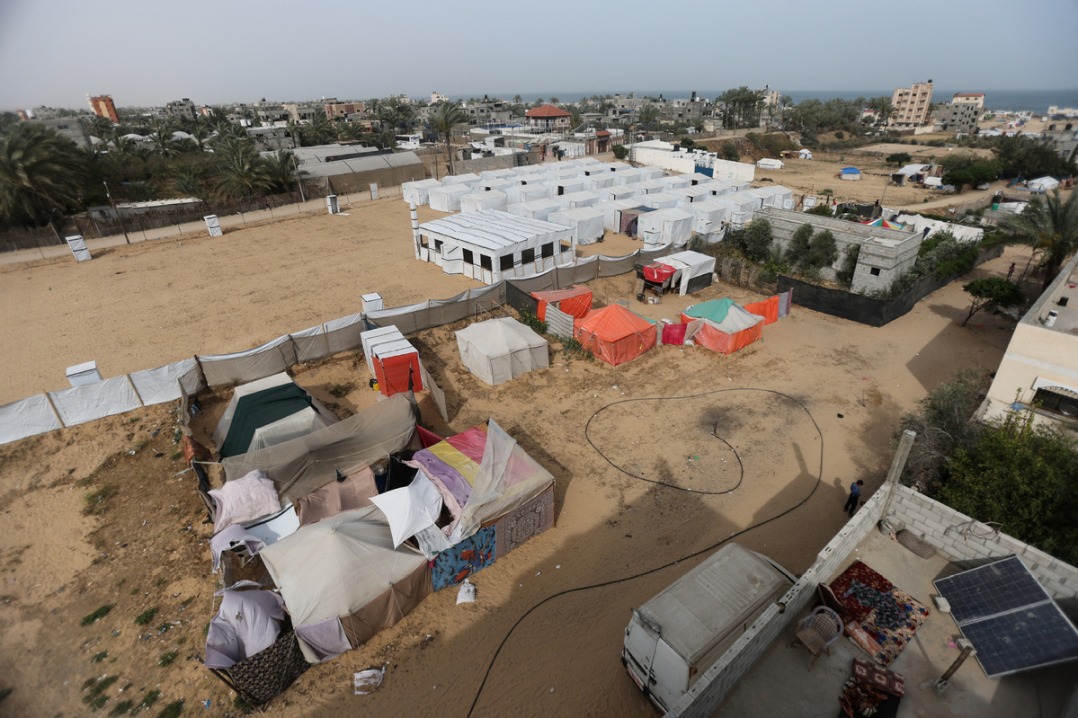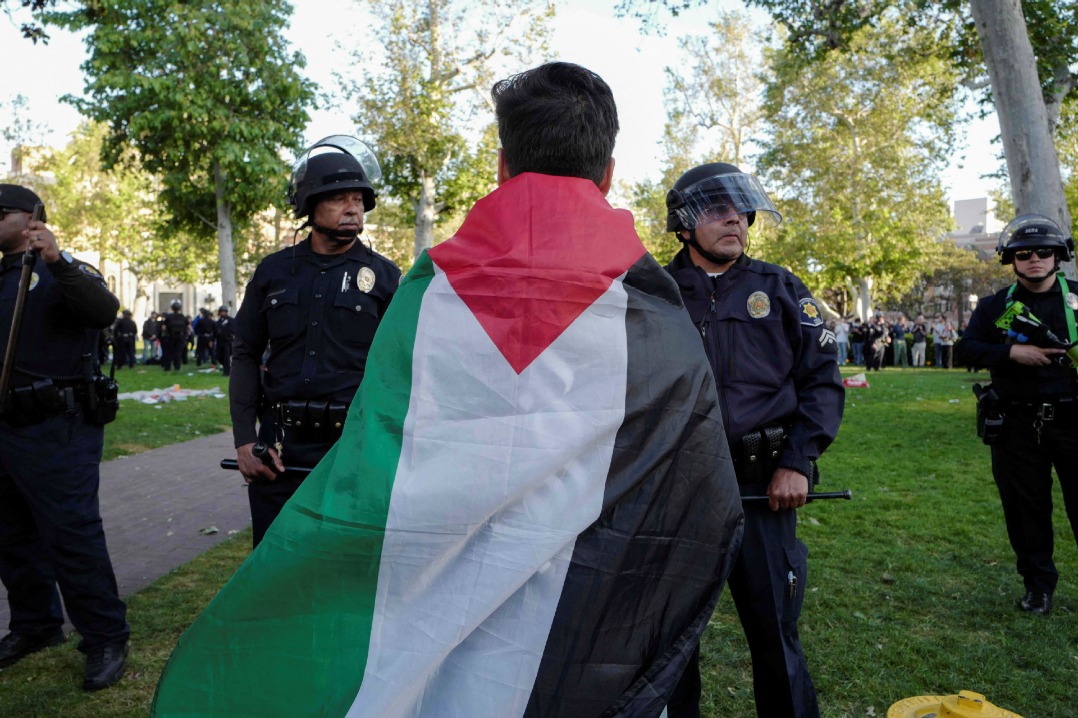Expense of military conflict unbearable


How different is the Russian-Ukrainian war as seen by those in Bakhmut, where Ukrainian and Russian forces are fighting, from the view of those in the conference room of the NATO air base in Ramstein, Germany, where representatives of 54 countries are trying to agree on more military aid for Ukraine.
The fighting will continue as both belligerents stubbornly take mutually exclusive positions, expecting the negotiations to exclusively meet their terms, which are unacceptable to the other party. But eventually peace talks must take place, because the fighting will not be decisive either on the frozen front of Bakhmut, or on other front lines drawn by strategists and politicians in Kyiv, Moscow, or some other capitals. A cease-fire must be agreed to, and peace negotiations must be held. Yet, according to those promoting continued fighting, these will only happen when one side or the other is greatly exhausted, if not on its knees. So far, each side believes that by continuing the hostilities, its negotiating position will be more favorable.
The situation is further complicated because the conflict continues to escalate. It has become an international conflict on an ever-increasing scale, involving about 60 countries, most of which are supporting Ukraine. Without economic and financial aid, Ukraine would already be a failed state; in 2023, more than half of the Ukrainian budget is foreign-funded.
Although it does not directly participate in combat with troops under its command — rightly so, because it could quickly turn Cold War II into World War III — NATO has been flexing its muscles. Russian President Vladimir Putin's "special military operation" would soon have ended in a victory for Russia, if not for the huge military aid provided by the West, which has cost it over $100 billion in the first year of the war. So far, despite unanimous political declarations made in 2009, the rich West has not been able to allocate such an amount to help poor countries in their fight against climate warming, the true global public enemy No 1.
The recent meeting in Ramstein of 30 NATO members and delegates from another 24 countries, including Japan and Australia, again shows that although there is general and firm support for Ukraine, the positions of individual states vary, with a conflict between ideals and interests. The idea of fighting for "a just" cause (especially when it is far from one's borders) reconciles the whole group easier than the practicalities of specific monetary and in-kind support. The conflicting interests of NATO members and their influential military-industrial lobbies collide.
While it is expensive for countries to send military equipment, it is a lucrative business for their armaments companies. No wonder, therefore, that as many as five brands of howitzers — the US M777, British AS90 Braveheart, German PzH 2000, French CAESAR and Polish AHS Krab — that require different ammunition and partially different logistics, have been sent to Ukraine at the expense of taxpayers. There have been disputes concerning the supply of tanks: US Abrams, British Challengers, German Leopards and French Leclercs. At the NATO level, coordination in this matter is failing, and in Kyiv, harsh words of discontent are heard: "Every day of delay is the death of Ukrainians", President Volodymyr Zelensky's adviser has said, appealing for more weapons. For Ukraine, these deliveries — their timing and quantity — are seen as essential; for arms manufacturers, it is an opportunity to showcase their armaments, so why should they want to shorten the duration of the conflict? That would reduce their profits.
But supplying military equipment is straining the budgets of the countries that are doing so. Years of spending exceeding revenues have led to a United States public debt of 121 percent of GDP.The situation is hardly better in other Western countries, and in some, such as Italy, Greece or Japan, it is much worse. The cost of servicing this debt is rising even more in the wake of anti-inflationary interest rate hikes. The time of great fiscal challenge has arrived. Public expenditures related to the functioning of pension systems inevitably increase due to deteriorating relations between people of working and post-working age. Healthcare spending in aging societies and state expenses toward net-zero greenhouse gas emissions are also growing.
The possibilities of cutting other public expenditures are slight, so it will be necessary to raise taxes. This is not because a group of billionaires and millionaires have called for it, sending a spectacular yet practically insignificant letter to the participants of the Davos Economic Forum, but because state coffers demand it if we want to avoid another serious financial crisis. So far, we are on the road toward one.
Politicians do not present the matter honestly. While declaring that aid for Ukraine is costly and that it is necessary to increase defense expenditures, they do not say that it has to be paid for either by lowering the level of some public services, such as healthcare or education, or by increasing taxes. Reality will force them to say it, in different countries at different times, depending on the phase of political cycles and public mood.
On average in the Organization for Economic Cooperation and Development countries, the ratio of taxes to GDP is 36.3 percent. In the US, it is 10 percentage points less, only 26.6 percent, so it should be easier to raise taxes. In France, where this ratio is almost 10 percentage points above the average, 45.7 percent, it will be very tough. In Poland, the political class imposed a statutory obligation to allocate at least 3 percent of GDP annually to defense, without indicating where this additional 1 percent over the level of 2 percent of GDP suggested by NATO should come from, and recently the prime minister announced an increase in military spending in 2023 to as much as 4 percent of GDP.
The sooner there is a cease-fire in Ukraine and peace negotiations begin the better. Concerted international efforts are needed to this effect. It is a time for diplomacy and statesmen, not an arms race and zero-sum politicians.
The author is a professor at Kozminski University in Warsaw, distinguished professor of the Belt and Road School at Beijing Normal University and a former Polish deputy prime minister and minister of finance. His new book, Global Consequences of Russia's Invasion of Ukraine: The Economics and Politics of the Second Cold War, will be published in March.



































